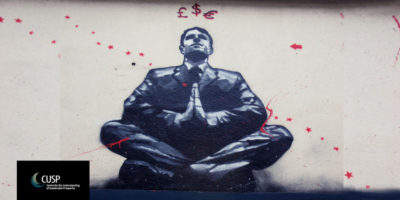Self-transcendent experiences and sustainable prosperity
Patrick Elf, Amy Isham and Tim Jackson
CUSP Working Paper Series | No 32
Summary
The achievement of sustainable prosperity requires the enhancement of human wellbeing alongside increased care for the environment. In recent years, much has been written on the role of different mental states and their potential to influence our way of thinking and, perhaps more importantly, the way we act.
In this working paper, we explore the emerging potential of a type of mental state known as Self-Transcendent Experiences (STEs) to deliver beneficial effects on human wellbeing and sustainable attitudes and behaviours. Self-transcendent experiences can be facilitated by experiences of flow, awe and meditation, as well as psychedelic experiences.
Some of these experiences can occur naturally, through sometimes unexpected encounters with nature or during immersion in every-day activities that one intrinsically enjoys, as well as through more intentional practices such as meditation or the use of psychedelics.
We demonstrate how each of the four alternative types of STEs share some similar neurological underpinnings and review their links to improvements in human wellbeing and sustainable attitudes and behaviours.
We also highlight potential risks across the different varieties of STEs and consider factors that need to be considered if they are to be employed as a practical means of supporting sustainable prosperity.
The full working paper is available for download in pdf (4MB). | Elf P, Isham A and T Jackson 2022. Self-transcendent experiences and sustainable prosperity. CUSP Working Paper No. 32. Guildford: Centre for the Understanding of Sustainable Prosperity.
Acknowledgements
The financial support of the Economic and Social Research Council for the Centre for the Understanding of Sustainable Prosperity (ESRC grant no: ES/M010163/1) is gratefully acknowledged. We would also like to thank Ian Vickers for earlier comments and suggestions, and Linda Geßner for her support and the management of the Working Paper.




